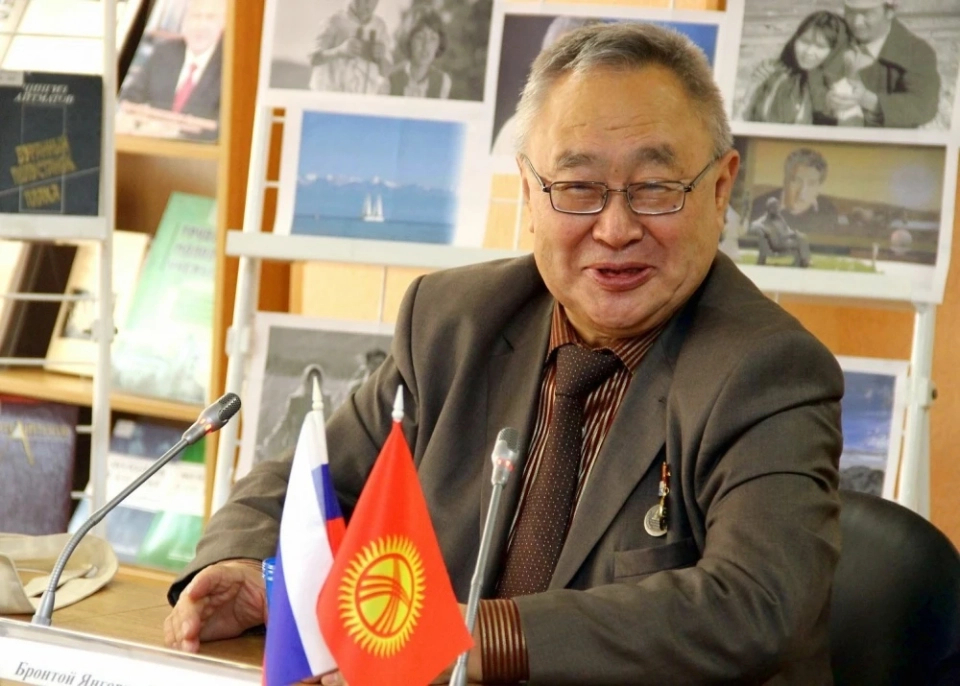Brontoy Bedyurov: "The Unity of the Peoples of Eurasia is Stronger than External Pressure"
At the International Forum "Heavenly Mountains of Civilizations – 2050," held in Bishkek in honor of World Science Day, the renowned Altai writer, Honored Cultural Worker of the Russian Federation, and Orientalist Brontoy Yangovich Bedyurov spoke. In an interview with a correspondent from VB.KG, he discussed the spiritual connection between the Kyrgyz and Altai peoples, the significance of Eurasia in world culture, and the importance of focusing on unity rather than differences.
- Brontoy Yangovich, recently there has been increasing discussion about the closeness of the Kyrgyz and Altai peoples in cultural and spiritual terms. How do you perceive this kinship — in language, traditions, worldview, or attitude towards nature?
- We have much in common with the Kyrgyz: blood, language, and cultural roots, aside from religious aspects. Until the 1930s, we had similar traditions and worldviews, even melodies of songs. When a Kyrgyz hears an Altai song, his heart responds as if he has heard something familiar. We speak different dialects of one large language, which is a clear proof of our indivisibility.
- Can we assert that a shared history can become a unifying factor for the peoples of Eurasia?
- Absolutely! We share a common blood and language. True Turks are peoples with "uru" (clan). If a people lacks this, then they are not true Turks but have become Turkic-speaking. The first Turkic Khaganate, which preceded the Huns, spoke an Altai-Kyrgyz language. We began to call ourselves Turks only after Atatürk. Europeans, being closest to the Turks, used the term "Turkic-speaking people." If they were closer to the Kyrgyz, they might have said "Kyrgyz-speaking people."
Our language covers vast territories from the Yellow Sea to the Black Sea. Just like in America, to become part of society, one must know English. This was also the case in ancient Eurasia, where the state language served as a common language for all.
- Is the kinship only between the Kyrgyz and Altai peoples?
- No, this kinship also extends to the Khakas, Tuvans, and other peoples of Siberia and Russia. We share common roots, culture, and history. Despite external pressures trying to divide us, we form a single spiritual organism united by language, traditions, and customs.
- You often speak about ancient Turkic writing. Why do you believe it is necessary to "rewrite" history here?
- I would say it is necessary to clarify, not rewrite. European scholars who visited Siberia were amazed by the writings on stones but did not find the people who created them. They called it the Yenisei or Orkhon script. But this is Kyrgyz writing! Our ancestors possessed the knowledge of writing long before universities emerged in Europe.
Now that we have our own state and Academy of Sciences, it is time to restore historical justice. We need to correct things, as the Chinese do: where it is correct — preserve it, and where it is erroneous — correct it.
- Do you believe that historical science in Kyrgyzstan and Altai requires revision?
- Not revision, but strengthening. Much has already been done, but it is important to continue this work. I advised Kyrgyz archaeologists to conduct joint expeditions with their Mongolian colleagues. In Mongolia, in Ulan-Gom, there was a center of the ancient Kyrgyz Khaganate. There are still unexcavated monuments there. If foreign scholars arrive first, they may claim these lands for themselves, stating that "Europeans" or someone else lived there. Therefore, we need to explore our history at the state level ourselves.
Our scholars, historians, and archaeologists need to work actively. Expeditions are being conducted, but this should be supported at the level of state funding.
When we talk about Eurasia and Greater Altai, we mean not only geography but also a philosophy of unity, respect for the land and ancestors. Russia is currently making significant strides towards reviving this philosophy, and Kyrgyzstan is moving in the same direction. In recent years, our countries have done much to restore connections, and now it is up to society and the regions. We must continue this work.
- You emphasize the importance of preserving language as the foundation of unity. How closely related do you think the Kyrgyz and Altai languages are today?
- They are very close. I often joke that the Kyrgyz-Russian dictionary by Yudakhin serves as my Altai-Russian dictionary. About 85% of the words are identical. The Kyrgyz language has incorporated some Arabic and Uyghur borrowings, while ours has Russian and Mongolian. However, the essence remains the same. It is remarkable that even after 800 years of separate existence, the language has hardly changed. This indicates that we are not just neighbors, but one people, divided by history but united by spirit.
- In conclusion, what would you like to say to the youth of Kyrgyzstan and Altai?
- Do not let anyone convince you that you are different. We are the descendants of those who first looked at the world from the peaks of Altai. As long as we remember this, no propaganda can divide us. Our path is one of unity, not rivalry. Eurasia will survive only when it remembers that it has one heart and one root.
Read also:
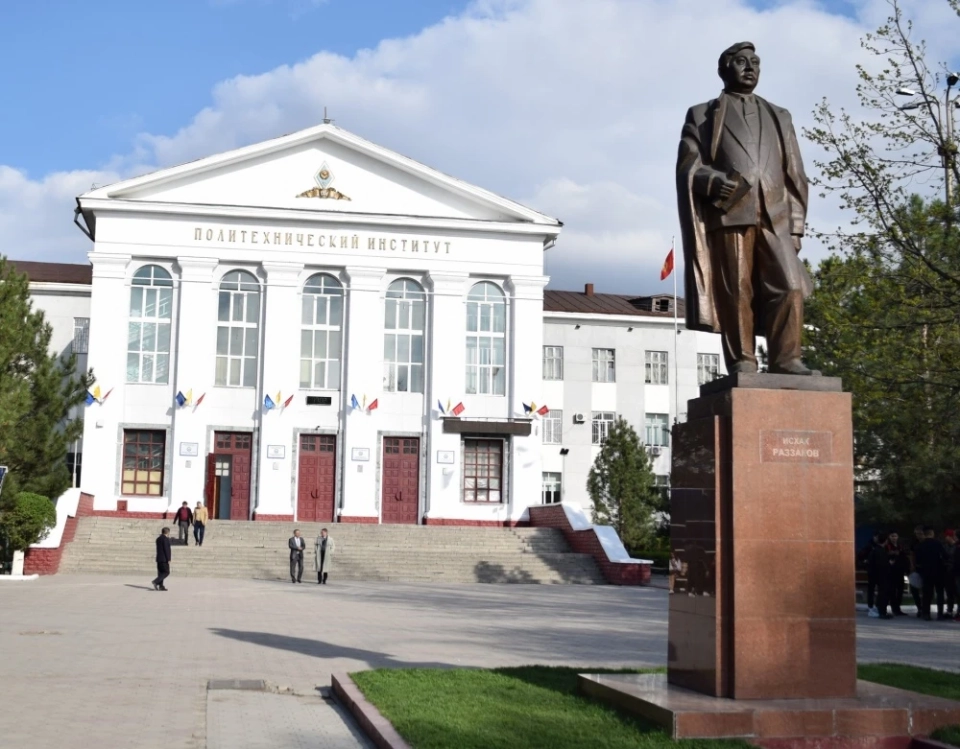
The International Forum "Heavenly Mountains of Civilizations – 2050" will be held in Bishkek.
On November 13, 2025, an International Forum titled "Heavenly Mountains of Civilizations –...
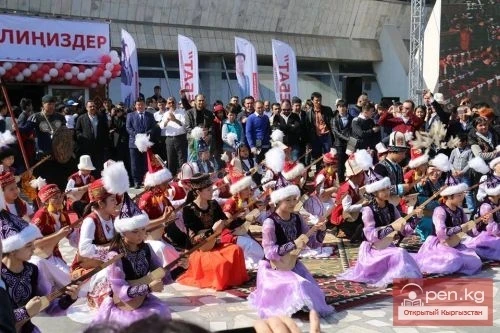
The XIII International Festival "Language and Culture" for Students Took Place in Bishkek
On March 19, the XIII International Festival among students 'Language and Culture' was...
Russia is ready to assist in the formation of the program for the Year of Chyngyz Aitmatov, announced in Kyrgyzstan for 2028.
On October 30, a meeting took place in Bishkek between the Minister of Culture, Information, and...
Pelageya, Zhilin, ballet "Renaissance" performed at the gala concert in Bishkek as part of the opening of the Days of Russian Culture in the Kyrgyz Republic.
On October 29, the official opening of the Days of Culture of the Russian Federation took place in...
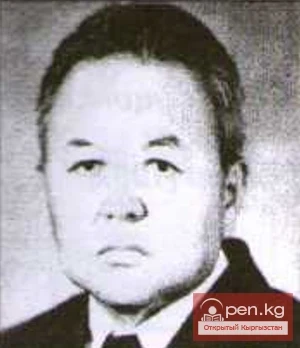
Tursunov Askar
Tursunov Askar (1928), Doctor of Philological Sciences (1992), Corresponding Member of the...
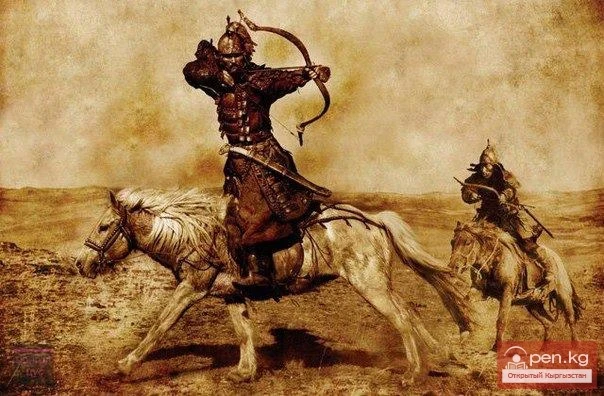
Turkic Authority
Turkic Beilik In the work "Hudud al-'alam," the word "Turk" appears as...
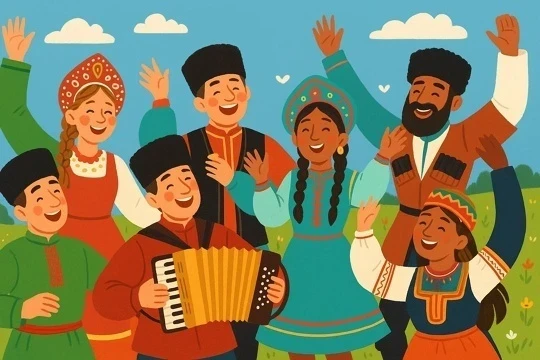
In Russia, Language Day and Indigenous Peoples Day Established
President of the Russian Federation Vladimir Putin has signed decrees establishing two new...
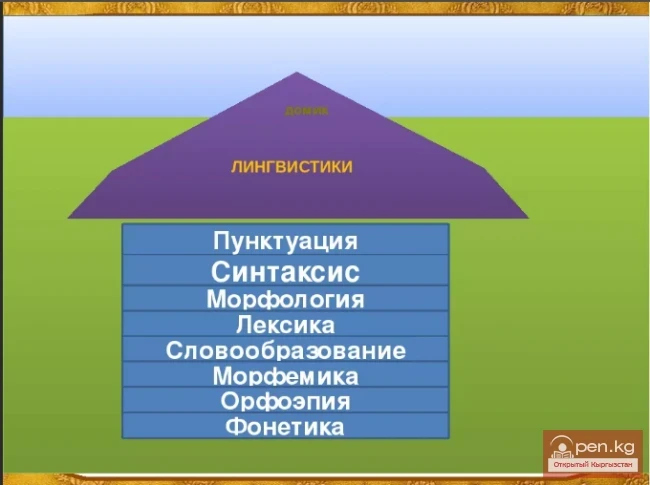
Lexicon and Morphology in the Kyrgyz Language. Part - 3
Lexicon. The origins of the formation and development of the vocabulary of the Kyrgyz language are...
Eldar Aitmatov became the laureate of the special "Eurasia" award
Kyrgyz public figure Eldar Aitmatov, who is the son of the famous writer Chyngyz Aitmatov, was...
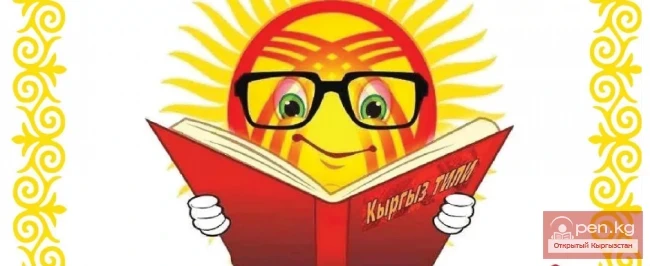
Kyrgyz Language. Part - 1
Basic Information about the Kyrgyz Language The Kyrgyz language is the state language of the...
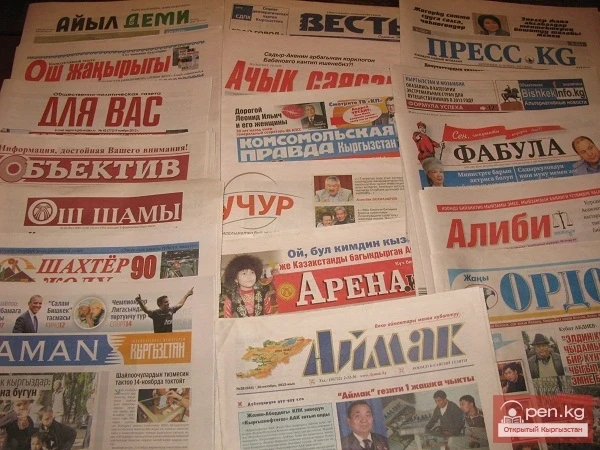
The History of Kyrgyz Printing
Printing in Kyrgyzstan On November 7, 1924, the first issue of the newspaper "Erkin-Too"...
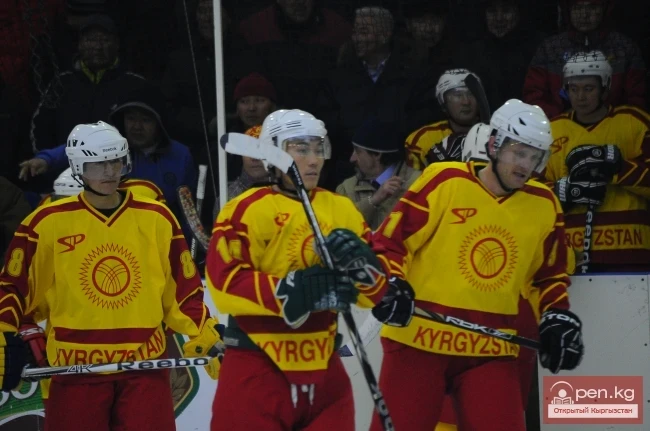
The Kyrgyzstan national team is preparing for the Eurasian Hockey Cup.
The Kyrgyzstan national team is preparing for the Eurasian Cup in hockey among children's...
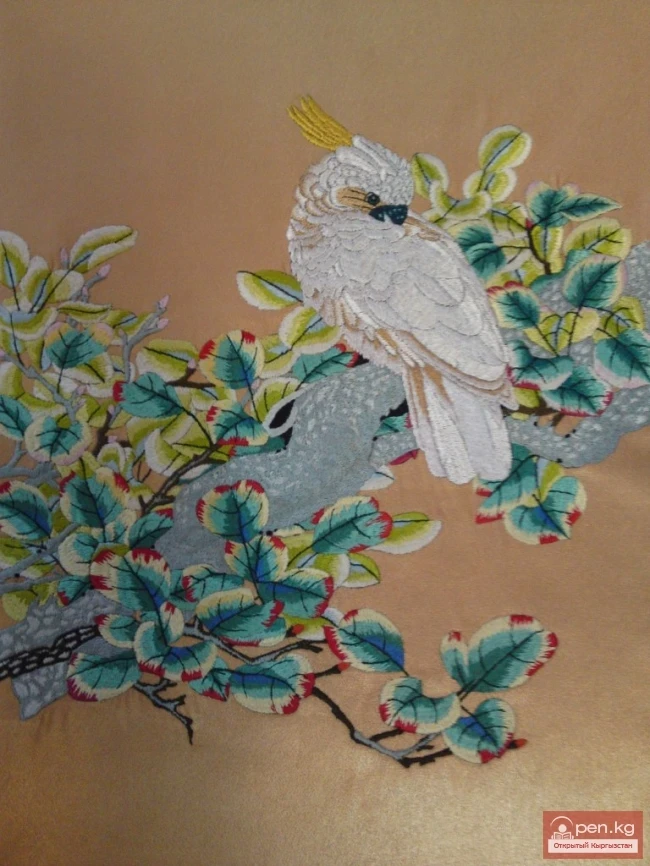
On the Language of Beasts and Birds
Once upon a time, there lived two khans next to each other. Each of them had a son. From...
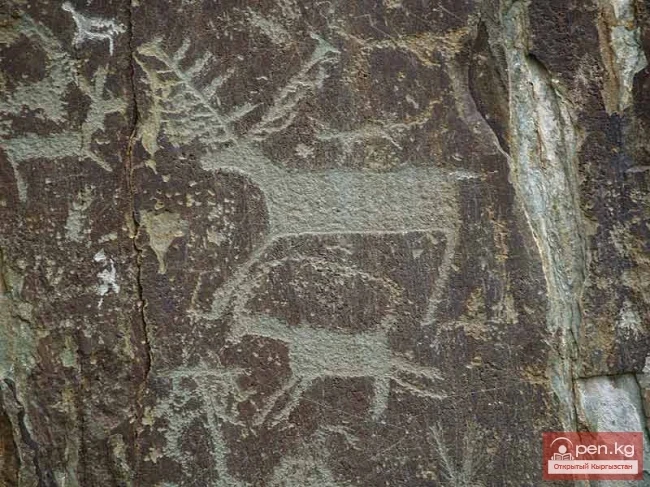
"The Russian Word in the Dialogue of Cultures of Russia and Kyrgyzstan"
Altai Civilization in the Tian Shan On October 26, the two-day I International Congress-Exhibition...
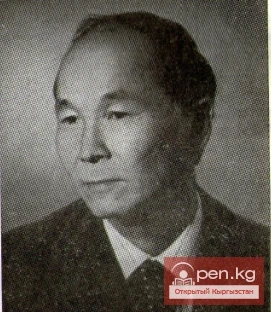
Klimov Kasym
Klimov Kasym Editor. Honored Worker of Culture of the Kyrgyz SSR (1974). Member of the Communist...
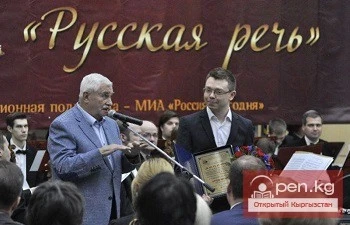
Writer from Kyrgyzstan Artem Khegai became the best prose writer of the international competition "Russian Speech"
Bishkek writer Artem Hegai took first place in the 'Prose' nomination at the...

Etiquette - a set of universal rules for communication and behavior norms
Identifying the ethnic specificity of etiquette is a rather complex task, for which a large number...
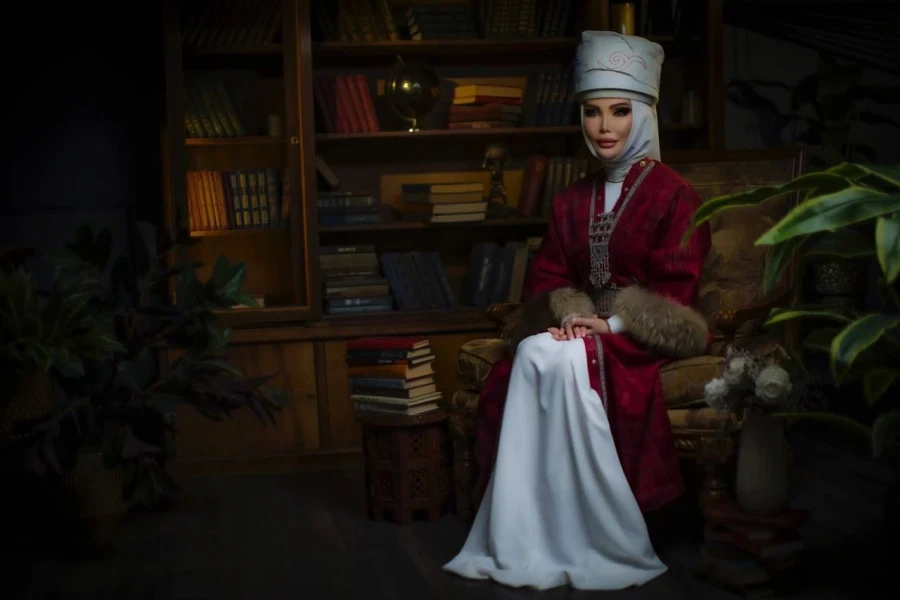
Assol Moldokmatova appealed to the Investigative Committee of the Russian Federation regarding the posts of Ekaterina Bivol
The TV presenter requests the initiation of a criminal case against the blogger Assol...

A unique almanac featuring works by authors from Central Asia has been published.
A unique literary almanac "Creative Commonwealth" was presented in Bishkek, which...
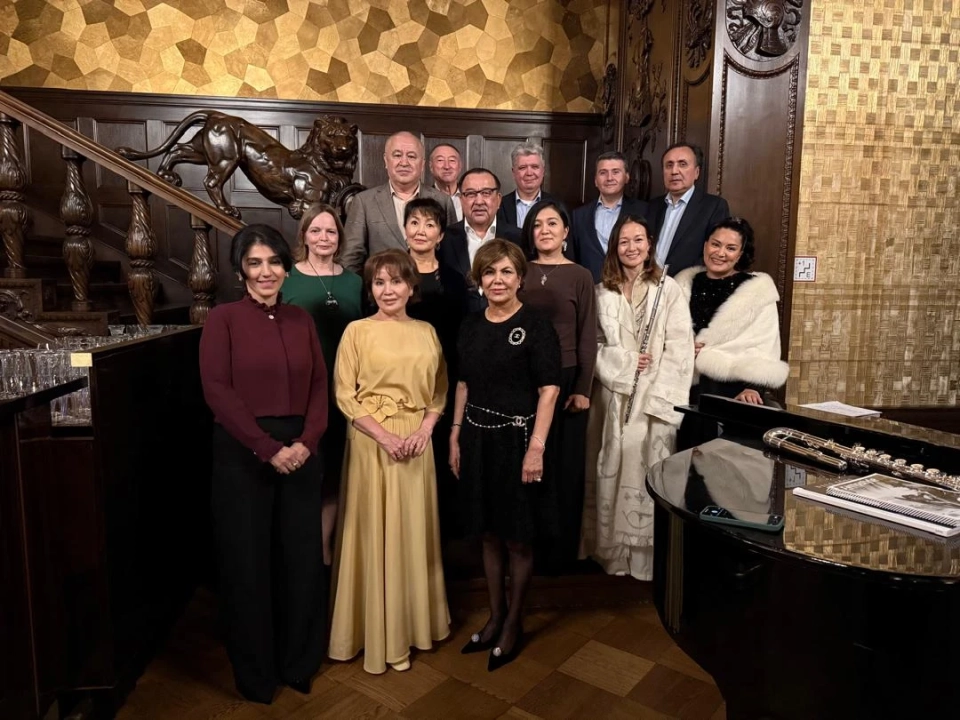
Barbarian in the Center of Europe. An Essay on the Meeting of Civilizations, Lamb, and the Meaning of Traditions
In the very heart of Europe, surrounded by mirrors and luxurious Empire-style chandeliers, I...
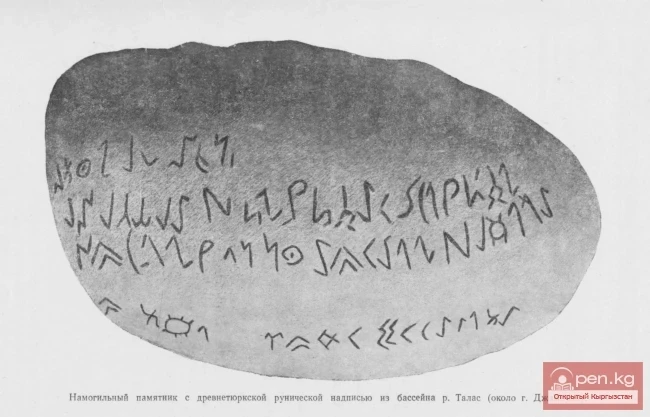
Monuments of Ancient Turkic Writing
Orkhon-Yenisei Turkic Monuments These runic inscriptions were mainly found in the territory of...
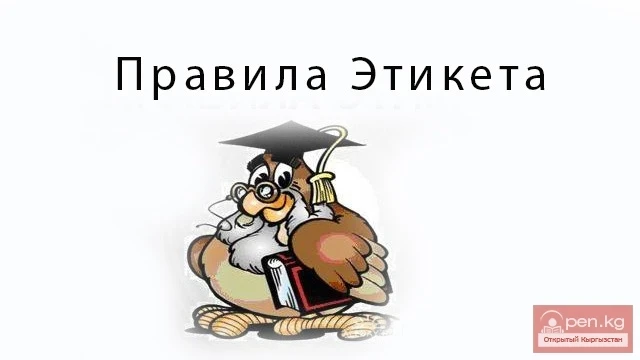
The Etiquette of the Kyrgyz
In the last decade since the birth of an independent state, numerous problems that had been...
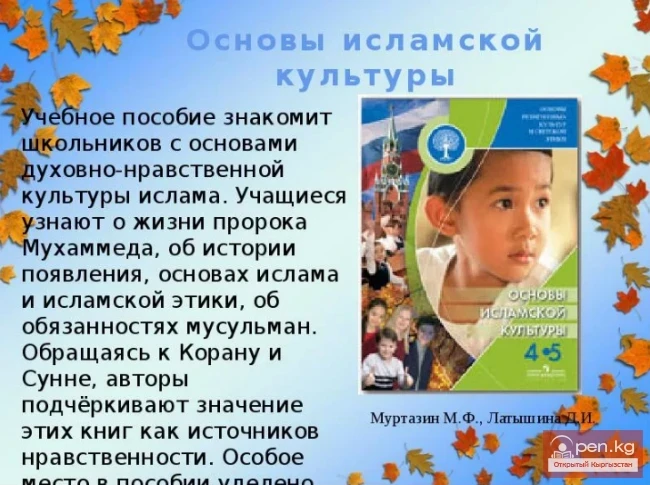
The Russian Federation is ready to share its experience in teaching religious culture in schools with Kyrgyzstan.
Russia is ready to share its experience in teaching religious culture in schools with Kyrgyzstan...
Bishkek Master Plan: By 2050, the number of municipal schools will reach 291
By 2050, it is planned to increase the number of municipal schools in Bishkek to approximately 291,...
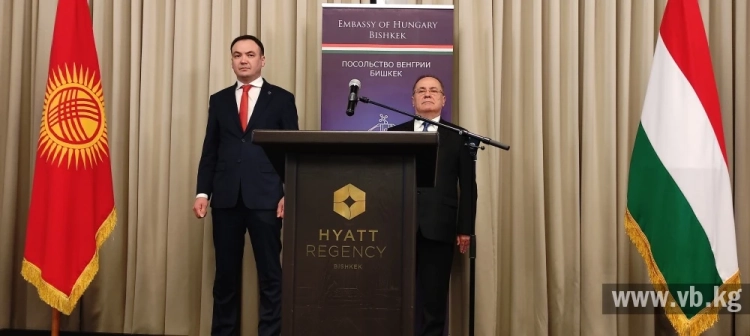
Ambassador of Hungary: Our countries are connected by common roots and nomadic traditions
Today, October 23, the Hungarian nation celebrates its National Day. On the eve of this event, the...
In 2024, more than 58% of published books will be in Kyrgyz.
In 2024, 1,020 titles of books will be published in Kyrgyzstan, with a total circulation of 1,617...
Centers for the Elderly and Children, Circus, Theater. What Will Be Built in Bishkek by 2050
As part of the master plan for the development of the capital until 2050, the creation of new...
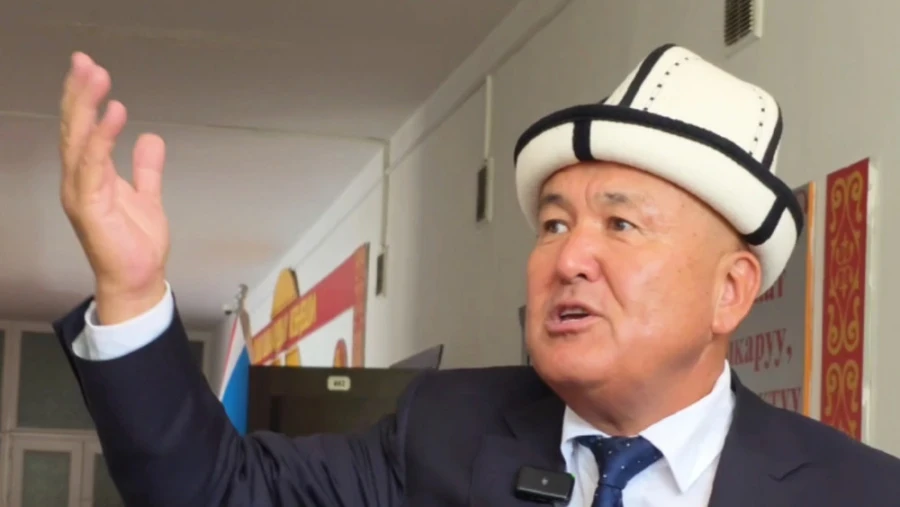
Poems in Honor of the Mayor of Osh, His Quotes on Market Bags - Popular Love or Smart PR?
“Who measured the love of the people?” At the ceremony dedicated to the completion of the...
Dancers from Kyrgyzstan Won Gold at the International Tournament in France
The Federation of Dance Sport of Kyrgyzstan announced the triumph of local dancers at an...
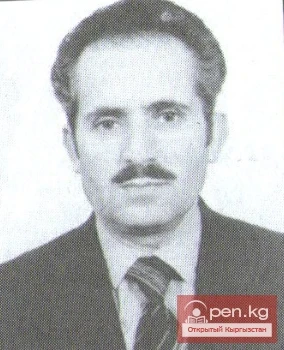
Fuksman Zyama Khaninovich
Fuksman Zyama Khaninovich Honored Worker of Industry of the Kyrgyz Republic. Born in 1938 in...
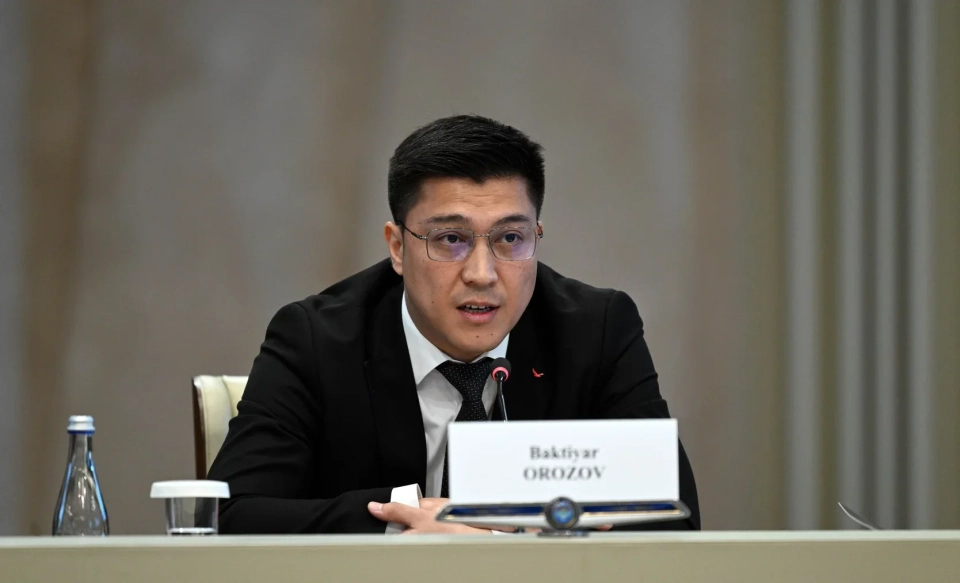
Bakhtiyar Orozov: The 100th Anniversary of the National University - A Reflection of the Formation and Development of the State
An important milestone in the history of the Kyrgyz National University, marking its 100th...
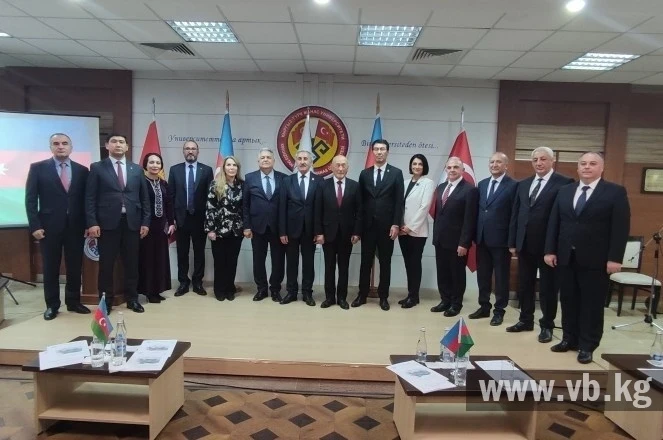
Medetkan Sherimkulov: Kyrgyzstan's Contribution to Azerbaijan's Victory
A festive evening was held in Bishkek, organized by the Embassy of Azerbaijan in Kyrgyzstan,...
The II International Forum of Youth of the Turkic World Took Place in Bishkek. Photos
The II International Forum of Youth of the Turkic World was held at the Kyrgyz National University,...
Film director Mikhalkov was awarded the Order of Dostuk. He is in Bishkek as part of the Days of Russian Culture in the Kyrgyz Republic.
At the event dedicated to the Days of Russian Culture in Kyrgyzstan, the Chairman of the Cabinet of...

Scientists: All Languages of the World Have Common Roots
Linguists from the USA and Britain compared the meanings of the most basic and simple words in 80...
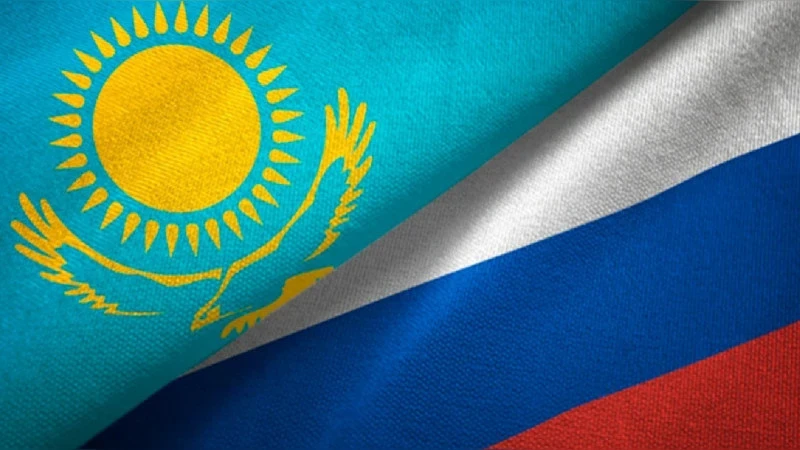
Eternal Friendship of Kazakhstan and Russia — a Guiding Star for Our States and Peoples, - Tokayev
In his speech, Tokayev emphasized that the peoples of Kazakhstan and Russia have lived in harmony...
The President of the Turkic Culture and Heritage Foundation participated in the TRT World Forum in Istanbul
Aktoty Raimkulova, president of the Turkic Culture and Heritage Foundation, participated in the TRT...
All Russian language textbooks for schools published in Russia have arrived in Kyrgyzstan
A new batch of textbooks adapted to local conditions has arrived in Kyrgyzstan. This became...
The festival of Russian cinema has begun in Bishkek
On October 29, the opening of the Days of Russian Culture took place at the Kyrgyz National...
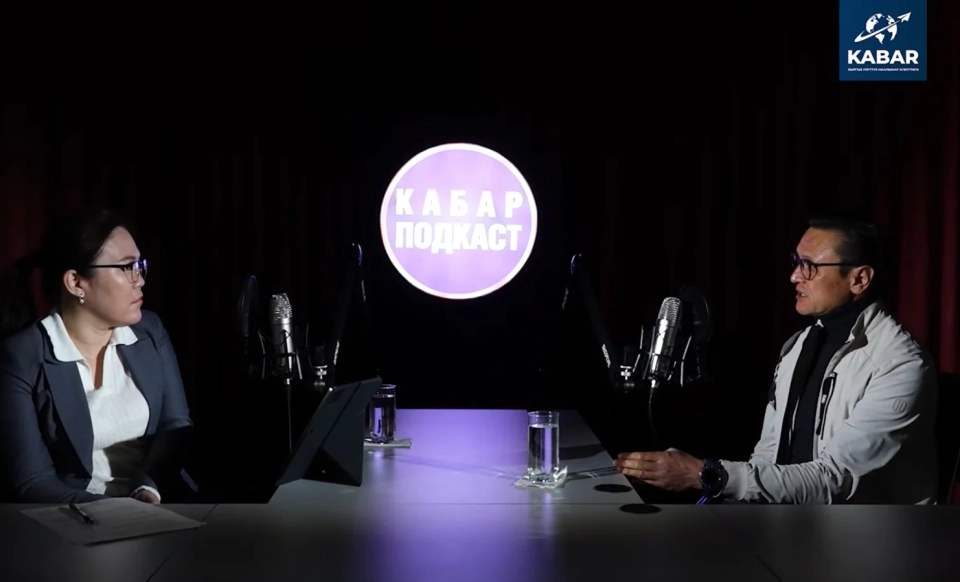
"Previously, there was not a single Kyrgyz in the Kyrgyzstan national alpine climbing team - Kubatov"
President of the Federation of Mountaineering of Kyrgyzstan, Eduard Kubatov, shared in a podcast...
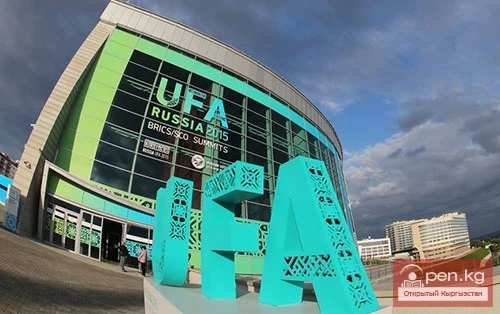
Kyrgyzstan Amazed Participants of the SCO and BRICS Festival in Ufa
The cultures of the Bashkir and Kyrgyz peoples are largely similar, and Kyrgyzstanis are very...
In Bishkek, the 110th anniversary of the people's artist and composer Jumamudin Sheraliyev was celebrated
A concert was held in Bishkek dedicated to the 110th anniversary of the famous cultural figure,...
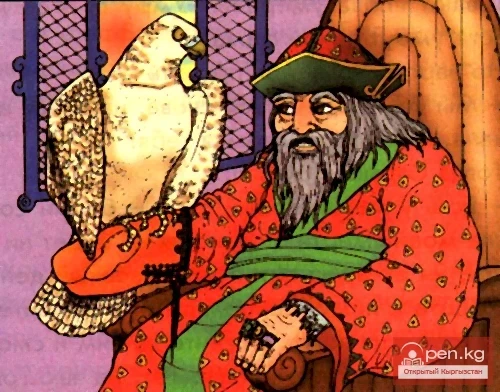
Pre-scientific Representations of the Kyrgyz about Nature
Knowledge and understanding of natural processes in which human life takes place is a prerequisite...
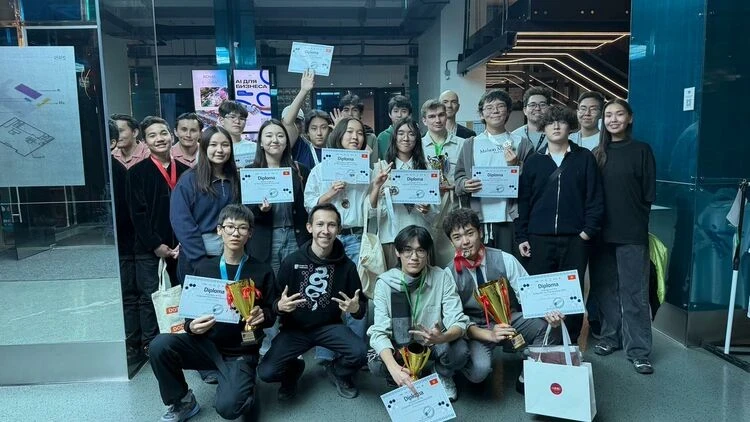
The largest Go tournament in the history of Kyrgyzstan took place in Bishkek
Photo by the Go Federation of Kyrgyzstan On October 26, the KR Cup in Go — 2025 was held in...
The Nature of Kyrgyzstan
The incredible beauty of Kyrgyzstan's nature...
